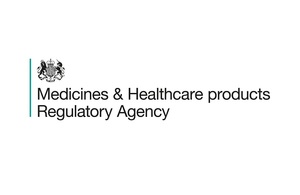MHRA safety review of medicines containing pseudoephedrine
The MHRA is reviewing the evidence relating to the very rare risk of posterior reversible encephalopathy syndrome (PRES) and reversible cerebral vasoconstriction syndrome (RCVS) associated with medicines containing pseudoephedrine

Pseudoephedrine is used for the symptomatic relief of coughs, colds and allergies. Pseudoephedrine has been used in the UK for decades in millions and millions of people. All pseudoephedrine-containing medicines in the UK are taken orally and come in tablet, capsule, powder, liquid, or syrup form; none of the decongestant nasal sprays authorised in the UK contain pseudoephedrine.
We are reviewing the available evidence relating to the very rare risk of posterior reversible encephalopathy syndrome (PRES) and reversible cerebral vasoconstriction syndrome (RCVS) associated with pseudoephedrine-containing medicines. PRES and RCVS are rare, reversible conditions, and most patients fully recover with appropriate treatment.
Since these products were authorised, we have received two UK Yellow Card reports of these possible side effects associated with pseudoephedrine, despite very widespread usage. The potential risk is considered to be very rare.
If signs or symptoms of PRES/RCVS develop, pseudoephedrine should be discontinued, and medical advice sought immediately. Symptoms reported include sudden onset of severe headache, nausea, vomiting, seizures, confusion and visual disturbances.
We would also like to remind patients and parents/carers to report any suspected side effects to our Yellow Card scheme.
We will provide any further advice as appropriate.
If you have any concerns about your medicine, please seek advice from a healthcare professional.
Further information:
-
Posterior reversible encephalopathy syndrome (PRES), also known as reversible posterior leukoencephalopathy syndrome (RPLS), is a rare condition in which parts of the brain are affected by swelling, usually as a result of an underlying cause. Someone with PRES may experience headache, changes in vision, and seizures, with some developing other neurological symptoms such as confusion or weakness of one or more limbs. Most patients fully recover from this condition.
-
Reversible cerebral vasoconstriction syndrome (RCVS) is a neurological disorder characterised by a sudden onset of severe headache associated with narrowing of blood pipes (intracranial vessels) that supply blood to the brain. On brain imaging the narrowing of the blood vessels can look similar to “string of beads”. In addition to headaches RCVS can also present as medical emergency with strokes (ischaemic strokes or bleed), seizure or as brain oedema (brain swelling). Usually, the narrowing resolves by itself within three months hence it is called reversible vasoconstriction.
-
PRES and RCVS have previously been identified as very rare potential side effects associated with pseudoephedrine containing products.
-
The European Medicines Agency’s safety committee (PRAC) is also conducting a review of pseudoephedrine.
-
The Medicines and Healthcare products Regulatory Agency (MHRA) is responsible for regulating all medicines and medical devices in the UK by ensuring they work and are acceptably safe. All our work is underpinned by robust and fact-based judgements to ensure that the benefits justify any risks. The MHRA is an executive agency of the Department of Health and Social Care.
-
The MHRA reviews reports of suspected side effects via the Yellow Card Scheme, run by the MHRA and the Commission on Human Medicines. The scheme collects and monitors information on suspected safety concerns involving healthcare products through voluntary reporting by the public (including patients, parents and carer givers) as well as from healthcare professionals.
-
The nature of Yellow Card reporting means that reported events are not always proven side effects. Some events may have happened anyway.